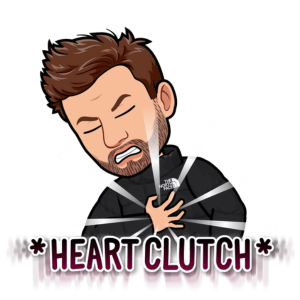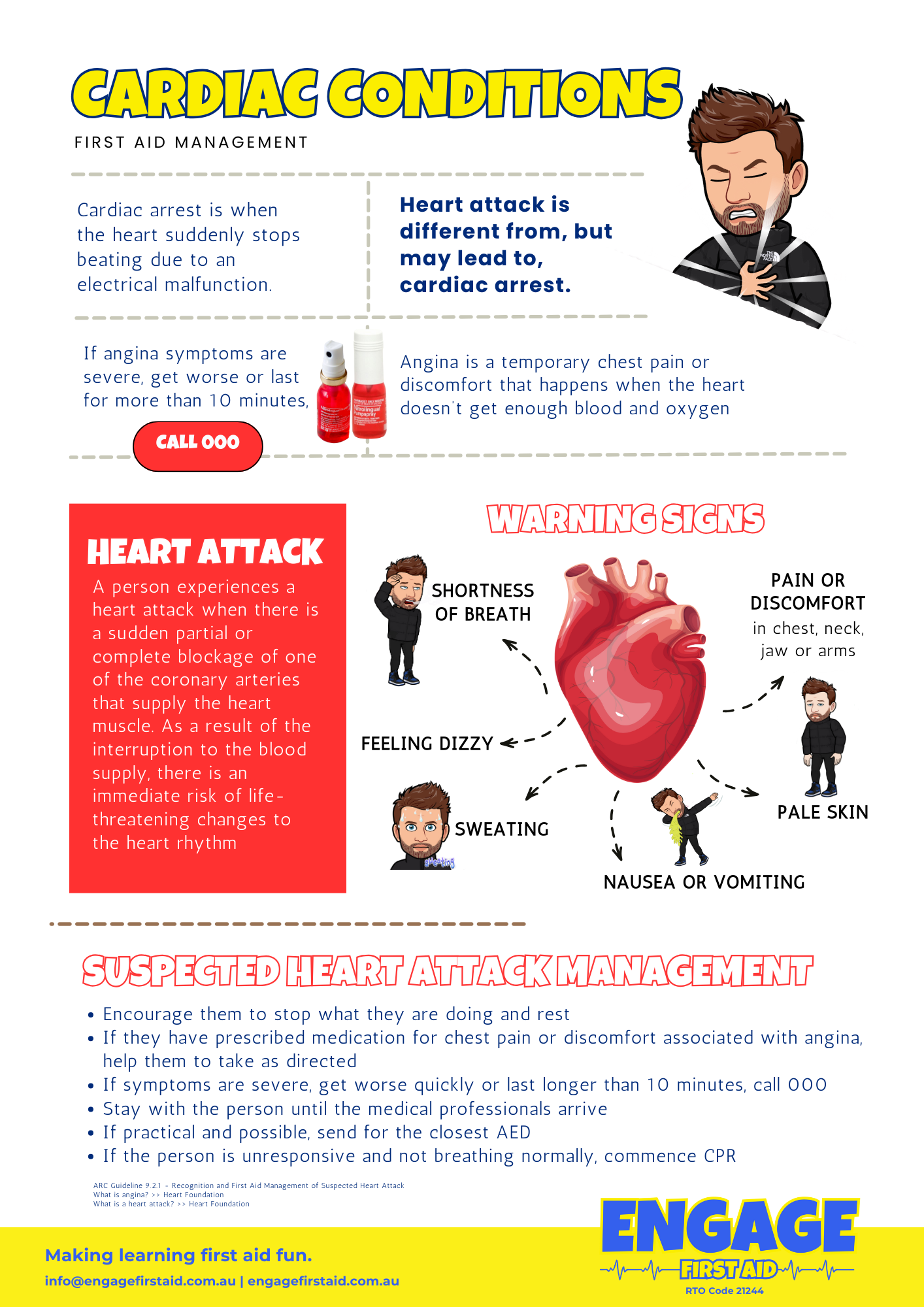Cardiac Conditions: Heart Attack, Cardiac Arrest and Angina First Aid
What is a Heart Attack?
A heart attack happens when there is a sudden partial or complete blockage of one of the coronary arteries that supply the heart muscle. The interruption to the blood supply, causes an immediate risk of life-threatening changes to the heart rhythm. There could also be a risk of serious, permanent heart muscle damage, If not corrected quickly. Urgent medical care is required to reduce the chance of sudden death from a heart attack.
What is a Cardiac Arrest?
A heart attack is different from a cardiac arrest but may lead to one. A cardiac arrest is when the heart suddenly stops beating due to an electrical malfunction.
For some, the first sign of a heart attack is sudden cardiac arrest, however warning signs are experienced by most.
A person can experience no chest pain or discomfort and a heart attack can happen
Someone experiencing a heart attack may pass off their symptoms off as ‘just indigestion’
Signs and symptoms of a Heart Attack
Shortness of breath - the most common symptom in a person without chest pain
Pain or discomfort in the chest, neck, jaw or arms
Pale skin
Nausea or vomiting
Sweating
Feeling dizzy or light-headed
First Aid Management - Suspected Heart Attack
Encourage the person to stop what they are doing and rest
If they have prescribed medication for chest pain or discomfort associated with angina, help them to take as directed
If symptoms are severe, get worse quickly or last longer than 10 minutes, call 000
Stay with the person until the medical professionals arrive
If practical and possible, send for the closest AED
If the person is unresponsive and not breathing normally, commence CPR
What is Angina?
Angina is a temporary chest pain or discomfort that happens when the heart doesn’t get enough blood and oxygen. If angina symptoms are severe, get worse or last for more than 10 minutes, call 000.
We believe in empowering everyone with life saving skills and want to start by raising awareness and spreading knowledge to keep hearts healthy!
The information provided in this blog offers general insights only. It is important to note that this content is not intended to serve as medical advice and if you are experiencing a medical emergency, please call 000 immediately.
References
Guideline 9.2.1 - Recognition and First Aid Management of Suspected Heart Attack




